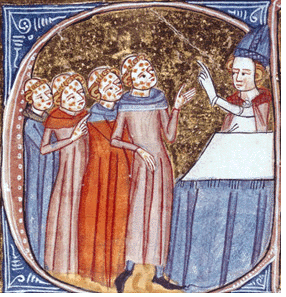
Last night, my brother made the grievous error of calling me hearing-impaired. I didn't mean to jump down his throat, but I hate that term. I just HATE it. I don't feel "impaired" in any way. In fact I am healthier than he is. I can't hear well, but there are so many other things I CAN do. Many things I do better than hearing people. For example, I have a super-duper sense of smell. Also, some of my friends have pointed out that I'm more observant of visual details than the average person. I feel most deaf people learn to compensate for their hearing losses, and live relatively normal lives. I believe I have had a really GOOD life compared to most.
I am not magnificently talented, but I have a personality and interests outside my hearing loss. I'm an avid reader. I know a bit about butterflies and gardening. I love opera-- what little I hear of it-- but I love the stage and sets and costumes. I have raised three children, manage a home, dabble in ethnic cooking, and I've recently become a vegetarian. So I've been experimenting with vegetarian dishes lately. I am taking American Sign Language, learning how to belly-dance and how to play a West African drum called the djembe. I'm also in the process of redecorating my home since my youngest is going to move out soon. I'm planning two trips out of the country in the coming year too. That's why this blog is called LIFE and deaf. Deaf and hard-of-hearing people do all the same things everyone else does. We're not all about deafness. If you are deaf or hard-of-hearing, I'd love to hear what you're doing, what your hobbies are, and your talents. Please- drop a line. I want all those hearing people out there to stop thinking of us as being "impaired."

Today, and for the next few Sundays, I plan to dedicate my blogs to outstanding deaf and hard-of-hearing people who have achieved unusual success above and beyond the norm. Deaf heroes. My first choice is William "Dummy Hoy." ("Dummy is NOT a nice word to call the deaf today, but William Hoy was born in the 1860's when the word 'dumb' meant 'mute', not stupid. "Dumb" has since morphed into a more negative, ugly connotation for the deaf, and you could get punched in the nose for calling a deaf person that today.) William Hoy was the first deaf major league baseball player. Not only was he a great baseball player, but he also helped his team by inventing "secret baseball hand signals" still in use today. Many deaf people are very athletic and signing can be put to good use in a lot of sports! Many deep sea divers use it, for example. To read more about William Hoy go here William Hoy.


